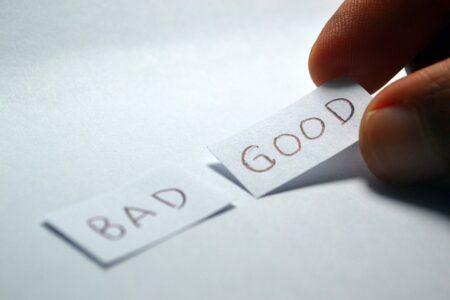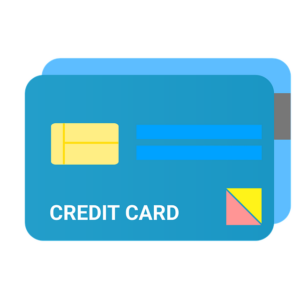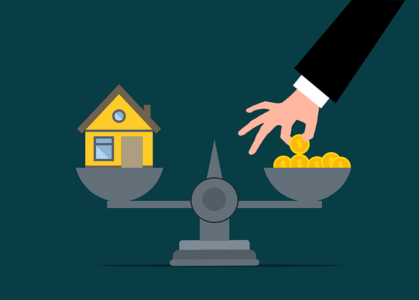Jasmine Birtles
Your money-making expert. Financial journalist, TV and radio personality.


We spend all our lives trying to stay out of debt… but did you know there are some circumstances where debt could be a good thing?

First things first: all debt is bad debt if you can’t afford to repay it. However, some debt can be good for building a credit score – which, in turn, helps you access other lines of credit like mortgages and personal loans, when you really need them.
Some debt can be good. If you can plan ahead, and you know what the debt is for, you can take on some debt and be a responsible borrower. For example, if you need to renovate your kitchen but can’t afford the up front cost (and we mean NEED to, not just want!), a personal loan is usually the least expensive route compared to payment plans with a kitchen supplier. If you have budgeted and worked out what you can afford to repay each month for the duration of the loan, then it can be a good debt.
Bad debt is often emergency debt. This includes things like going into your overdraft because you haven’t budgeted properly this month, or your boiler broke and you had no savings to pay for the repair. Bad debt is also the kind that is expensive, like credit cards you can’t afford to repay in full. The worst kind of debt is that which can attract a CCJ for non-payment, like Council Tax.
It sound ludicrous, we know, but in order to get credit, you need to have credit. This can make it very difficult when you’re first applying for things like a credit card, phone contract, or car finance. You also won’t be able to access larger loans like a mortgage, and it can also impact your ability to rent if you don’t have a good credit file.
The good news is that some debt can help you build a positive credit score. And you don’t need to be borrowing loads of cash or taking out huge expensive loans to do this. Let’s take a look at how to handle good debt.

Even if you only have a credit card with a small limit, say £300, this can help you look like a responsible borrower to lenders. The trick here is that you MUST repay it in full every month – don’t only pay the minimum or interest-only, as that’s a surefire way to spiral into bad debt.
Aim to spend between 10-20% of your total credit limit each month, and set up a Direct Debit to automatically pay the full balance at the end of each statement period. This ensures you don’t miss a payment (which is bad for your credit score), and is the right amount of debt to look like you’re responsible as a borrower. Using your full credit limit can actually have a negative impact on your score, so try to keep it under 25% if you can. And remember: always pay it off, in full, every month.
Most people who have been to university since fees were introduced now have student loans to pay off. The repayments don’t kick in until you start earning a certain amount, and then it is garnished from your wages – which means it’s taken off your paycheque before you get paid each week, fortnight, or month. In fact, this is how some people with student loans have accidentally overpaid, sometimes to the tune of thousands of pounds, so check if you’re due a refund!
Student loan debt isn’t considered a ‘bad debt’, unless you stop making repayments when they are due (like any kind of debt). It is also one that is easy to control because of the way repayments are made from your wages – you don’t have to remember to make repayments each month separately. It’s also not a debt accrued by poor financial management, unlike debts like an overdraft, so it won’t ding your credit score.

Now, your rent isn’t technically a debt unless you miss repayments and are taken to court. However, we’ve included it here just to show that you can now use it to build your credit score! It’s the biggest payment most people make each month and in the past it didn’t count towards your credit score. However, there are now services like CreditLadder that let you register your rent payment with them every month, which they report to credit reference agencies. This is particularly good for anyone trying to build a strong profile if they want to apply for a mortgage in coming years.
Speaking of mortgages, these are long-term debts that most people are anticipated to have. While it would be nice to afford a home outright, most can’t afford that. As long as you make repayments as you should each month, it’s a good debt.
A mortgage is an even better debt if you’re investing in buy-to-lets or property flips. It’s a bit of a juggling game, but a lot of investors will use a mortgage to finance their first property, earn income from that either through renting or renovating, and then move on to the next one. Selling the first property at a profit means they can pocket the difference and reinvest a similar mortgage allowance, or use the first property to borrow against to finance a second one. It’s a complex game, so if this is the kind of debt you’re considering taking on, it’s very important to speak to an independent financial advisor who specialises in this kind of accounting.
As we said at the start, all debt can be bad debt if it’s badly handled. However, there are some debts which should be avoided at all costs. These include:
